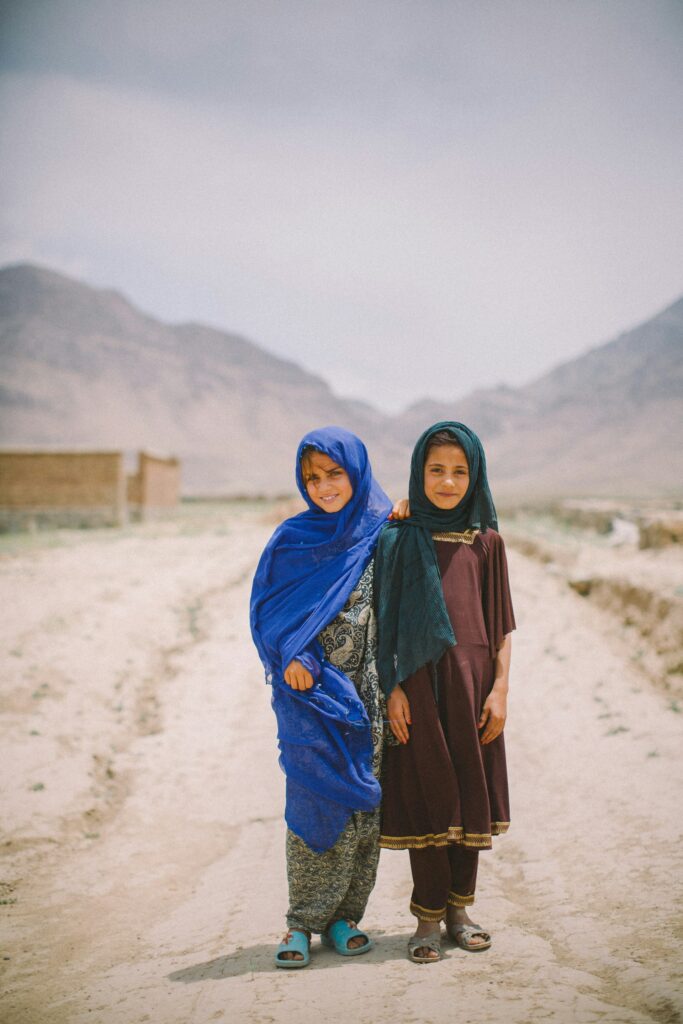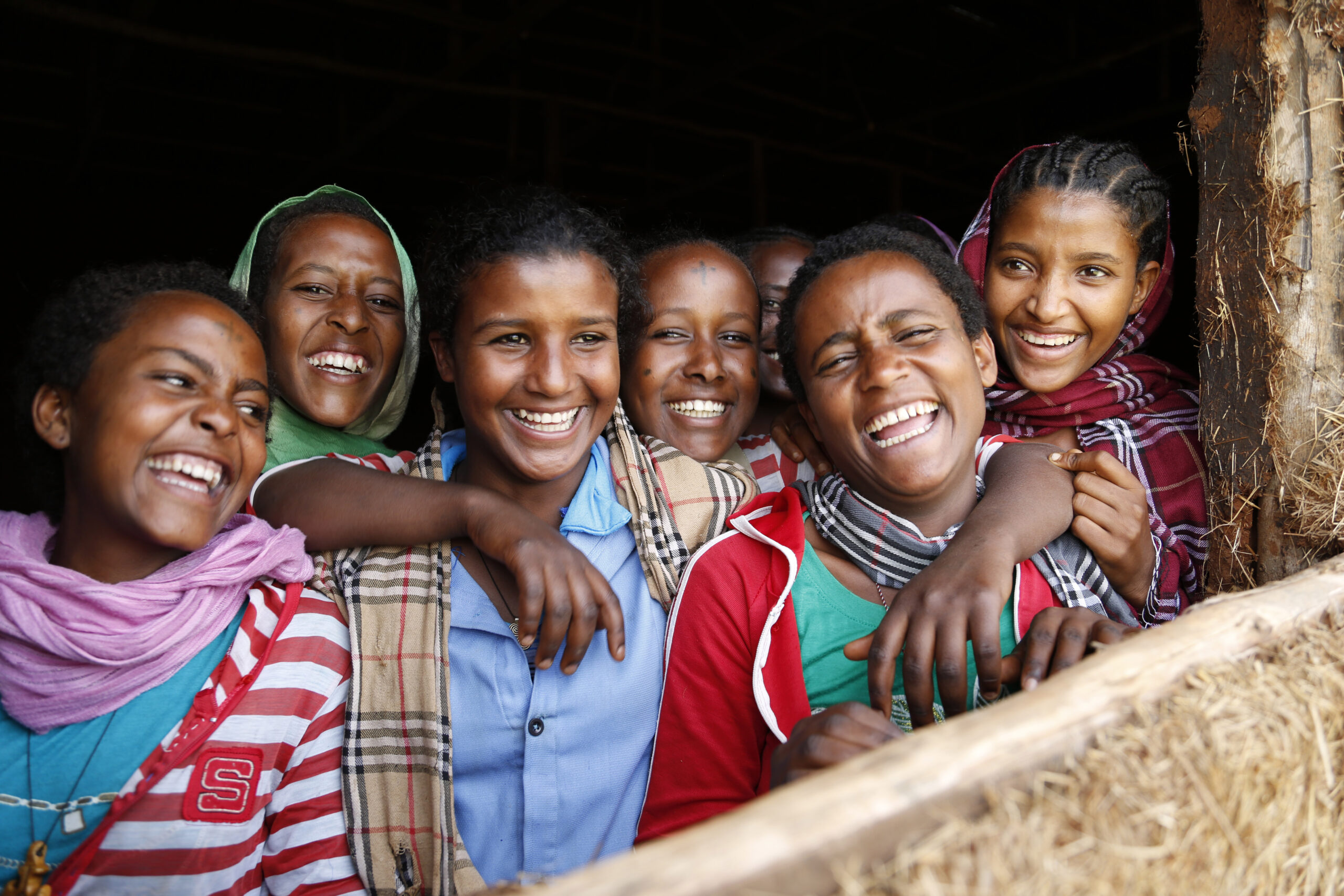CEO Insight: Women and Girls’ Right to Education

Last month, the International Criminal Court (ICC) issued arrest warrants for two senior leaders of the Taliban, accusing them of the systematic persecution of women and girls in Afghanistan. This marks a historic and long-overdue recognition: that the deliberate erasure of half a population from public life is not only an affront to justice – it is a crime against humanity.
Not long ago, I wrote about the term gender apartheid – a phrase that captures the stark and chilling reality facing Afghan women and girls, who are being excluded from civic, economic, and intellectual life. I first heard it used at an event spotlighting their ongoing struggle. I was both appalled and mystified. Appalled by the scale and severity of the repression. Mystified by the silence. Why has so little been done for so long, as women are stripped of their most basic rights and freedoms?
It is powerfully symbolic that the ICC’s announcement came in the same week the world marked Malala Day – a global call to action to empower girls through education. More than a decade has passed since a 16-year-old Malala Yousafzai stood before world leaders at the United Nations and demanded a world where every girl has the right to learn. Her birthday became a milestone in the global movement for girls’ education – a moment that continues to inspire legal, civil society, and governmental actors alike to push for change.
Today, that message is more urgent than ever. At stake is not just the future of Afghan girls – but the credibility of our international legal and human rights frameworks. Justice cannot be partial. Freedom cannot be selective. The rule of law must speak most clearly when the world is silent.
A human rights crisis
Nowhere in the world is the denial of education more acute – or its consequences more devastating – than in Afghanistan. Since 2021, a series of Taliban decrees have effectively barred over 80% of Afghan girls and young women from accessing secondary school and university. In a country where education once symbolised progress and possibility, those doors have been slammed shut.
The outcomes are as tragic as they are predictable. Afghan civil society has been relentlessly suppressed: activists silenced, journalists threatened or exiled, and minority voices extinguished. Women’s rights organisations – once the lifeblood of democratic reform – now operate in the shadows, their networks fractured, their leaders under constant threat, their resources all but depleted.
And yet, amid this erosion of freedom, courage endures. I remain deeply inspired by the Afghan women and girls who, at great personal risk, continue to teach in secret, organise underground networks, and speak out when silence would be safer. Their resilience, often unacknowledged by the global community, is not only an act of defiance – it is a profound expression of hope.
This is not a remote or distant crisis. It is the lived reality of a people whose fundamental rights have been rolled back in an instant. As lawyers, as advocates for justice, we cannot afford to be passive witnesses. The obligation to act has never been clearer.
Persistent Inequality
Globally, the crisis of exclusion from education remains a defining injustice of our time. According to UNESCO, some 258 million children are currently out of school. Gender disparities remain stark, with fewer than a quarter of countries achieving gender parity at the secondary level.
These are not abstract statistics – they represent lives diverted from opportunity. In too many parts of the world, girls are still pulled from classrooms to work, to marry, or simply because the cost of schooling is one the family cannot afford. When choices must be made, sons are too often prioritised, and daughters left behind.
The obstacles don’t stop at the school gates. Lack of sanitation, especially for menstrual hygiene, insufficient support for young mothers, and curricula embedded with gender bias all conspire to push girls out and keep them out.
Even before the Taliban’s formal bans, a study in Afghanistan found that fear for girls’ physical safety and the weight of social stigma often deterred families from sending their daughters to school. Structural inequality long predates the latest crisis – but it has been brutally accelerated.
Yet the evidence is clear: educating girls transforms societies. It interrupts cycles of poverty, improves health and wellbeing, and lifts whole communities. The benefits are exponential – reaching siblings, families, economies, and ultimately nations.
The transformative power of education cannot be overstated. It is not merely a policy choice or a development goal. It is the bedrock of dignity, of justice, and of sustainable peace. And it must remain a central imperative for all who believe in equality and the rule of law.
Expanding access against the odds
If we are to transform the promise of education into a reality, multiple obstacles must be addressed – not least, the legal infrastructure underpinning how resources, protections and opportunities are distributed.
In Afghanistan, bold initiatives are responding to this crisis with creativity and tenacity. One innovative education provider, for example, has adapted by creating free online curricula in local languages available from years 1 to 12, teaching everything from core sciences to digital skills. With limited access to the internet in rural communities, they turned to radio broadcasts and even distributed SIM cards pre-loaded with educational materials. By developing an offline learning app, they have ensured that students can access lessons in mathematics, physics, biology and chemistry on basic tablets, regardless of internet connectivity. These solutions have collectively reached millions of Afghan learners, thousands through in-person programmes and millions via airwaves.
Scaling this work comes with legal hurdles. Pro bono legal experts (coordinated through A4ID) have helped create robust contracts protecting their intellectual property and ensuring future income could be funnelled back to sustain and expand educational provision for Afghan girls and women.
Legal Empowerment
Support in scaling innovative approaches to education whether in projects relating to Afghanistan or through our work with education charities operating in India, Malawi and Nigeria we see firsthand how change can happen.
It demonstrates again and again that legal frameworks empower those in need, marking the difference between vision and impact, between precarious hope and resilient progress.
It reminds us that rights do not enforce themselves. They require advocates – lawyers, activists, partners – working together to transform ideals into reality. At A4ID, our mission is to connect legal expertise where it’s needed most, so that educational charities, activists, and grassroots groups can navigate complex legal landscapes, access new funding and focus their energies on reaching the most marginalised.
In many ways, this battle against existing prejudices is also a race against the clock. In places where girls’ education has been systemically set back, even a single year lost is enough to put an entire generation at risk. Once girls fall out of education, pathways to economic and political agency narrow, and rights can be lost for decades to come.
A Call to Action
The movement for universal, free, and equitable education for girls and women has never been more vital – nor its defence more urgent. Around the world, the right to learn is under threat, and with it, the very foundations of justice, equality, and peace.
Legal systems matter. Access to justice matters. When grounded in local realities and driven by courage and conviction, they can yield real, measurable change. But only if we act – collectively, consistently, and decisively.
Girls’ education is not a footnote to development – it is its cornerstone. It shapes the future of societies, unlocks economic potential, and strengthens democratic institutions. But this right – like every human right – remains hollow unless upheld by legal systems equipped and willing to defend it.
So, I write this to my peers across the legal community: see the education of girls not as a distant crisis, but as a personal, professional, and moral imperative. In every contract we draft, every policy we influence, every right we defend, we have an opportunity to advance this cause once and for all.
Let us commit ourselves to this work. Not in words alone, but in action. Because if we act – if we truly act – we can help ensure that education is no longer a privilege for the few, but a right secured for all. This is how justice is done. This is how a fairer and more inclusive future is forged.

